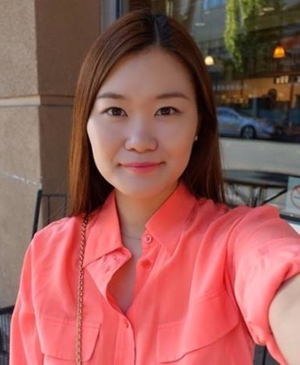Yangsun Hong
Associate Professor

Communication
- Email:
- sunhong@unm.edu
- Phone:
- (505) 277-5305
- Office:
- Room 202
Ph.D., University of Wisconsin-Madison, 2018
Profile
Dr. Yangsun “Sun” Hong is associate professor in the Department of Communication and Journalism and the combined B.A./M.D. degree program. She is a communication scientist who studies health communication and health inequities through a critical lens. She is specialized in quantitative research methods. Dr. Hong received her Ph.D. in Mass Communications with Ph.D. minors in Sociology (Intersectionality) and Educational Psychology (Advanced statistics) at the University of Wisconsin-Madison.
As an interdisciplinary scholar, Dr. Hong focuses on the roles of communication in the relationships between intersectional social positioning and health equity. Her research objectives are twofold: to understand the roles of communication in reinforcing or transforming social and health inequalities under power relations and to utilize communication as a method to redress such inequalities and social injustice. To achieve these goals, Dr. Hong takes two approaches. First, she situates communication in a multi-layered social structure and examines interactive relationships among people, communication, and society to impact the individual, social, and structural causes of inequities. Second, she examines the dynamics of communicative experience and culture, such as mediated communication (e.g., legacy media, social media) and human communication (e.g., interpersonal discussion, storytelling, communicative actions), to redress the inequalities. She conducts explanatory research to test, elaborate, refute, or extend theories of communication with a critical intersectional lens.
Dr. Hong is a founder and director of C&J’s Digital Media and Communication (DMC) Research Group. She is actively working with graduate students. Publications with student co-authors are marked with an asterisk (*) below.
Areas of Expertise
- Health communication
- Intersectionality
- Power relations
- Social influence
- Social determinants of health
- Communication inequality
- Media effects
- Communication ecology
- Public opinion
- De/re/politicization of health and health inequities
- Digital media, neoliberal governmentality, and health
Selected Publications
Hong, Y. & *Hashimoto, M. (2025). COVID-19 health messaging: How message frame and individual differences in collectivism and perceived risk influence intention for mask wearing and vaccination. Health Communication. 40(12), 2624-2637. https://doi.org/10.1080/10410236.2025.2471639
*Choi, M., Hong, Y., & *Kwon, H. (2025). Identifying Instagram user profiles: Who uses Instagram to get information about current public issues? Atlantic Journal of Communication. 33(2), 295-310. https://doi.org/10.1080/15456870.2024.2431288
Hong, Y. & *FitzGerald, C. (2024). Intersectionality in health communication: How health communication influences the association between intersectional discrimination and health information seeking. Journal of Health Communication. https://doi.org/10.1080/10810730.2024.2426805
Yoo, W., Hong, Y., & Oh, S. (2023). Communication inequalities mediate the associations between socioeconomic characteristics and preventive behavioral Intention during the COVID-19 pandemic: A comparative analysis of the United States and South Korea. BMC Public Health. http://doi.org/10.1186/s12889-023-16211-8
Hong, Y. & *Hashimoto, M. (2023). I will get myself vaccinated for others: The interplay of message frame, reference point, and perceived risk on intention for COVID-19 vaccine. Health Communication, 38(4). 813-823. https://doi.org/10.1080/10410236.2021.1978668
Hong, Y. (2023). Extending the influence of presumed influence hypothesis: Information seeking and prosocial behaviors for HIV prevention. Health Communication, 38(4). 765-778 https://doi.org/10.1080/10410236.2021.1975902
*Kim, L., Hong, Y., *Abrar, S., & *FitzGerald, C. (2023). Relationships between social media use, exposure to vaccine misinformation, and online health information seeking behaviors. Journal of Creative Communications, 18(2). http://doi.org/10.1177/09732586231166111
Hong, Y., *Myung, E. & *Kim, S. (2021). The substituting relationship between presumed media influence and interpersonal health communication. Journal of Communication in Healthcare, 14(3). 259-268. https://doi.org/10.1080/17538068.2021.1954411
Hong, Y. & *Kim, S. (2020). Influence of presumed media influence for health prevention: How mass media indirectly promote health prevention behaviors through descriptive norms. Health Communication. 35 (14), 1800-1810. https://doi.org/10.1080/10410236.2019.1663585
Barnidge, M., Gunther, A., Kim, J., Hong, Y., Perryman, M., Tay, S. K., & Knisely, S. (2017). Politically motivated selective exposure and perceived media bias. Communication Research. https://doi.org/10.1177/009365021771306
Hong, Y. & Rojas, H. (2016). Agreeing not to disagree: Iterative vs. episodic forms of political participatory behaviors. International Journal of Communication, 10. doi:1932–8036/20160005
Hull, S. J., & Hong, Y. (2016). Sensation seeking as a moderator of gain- and loss- framed HIV test promotion message effects. Journal of Health Communication. 21(1), 46-55. doi:10.1080/10810730.2015.1033113
Kim, H., Lee, D., Hong, Y., Ahn, J., & Lee, K-Y. (2016). A content analysis of television food advertising to children: Comparing low and general-nutrition foods. International Journal of Consumer Studies, 20(2), 201-210, doi:10.1111/ijcs.12243.
Yoo, W., Kim, S. Y., Hong, Y., Chih, M-Y., Shah, D. V., & Gustafson, D. (2015). Patient-clinician mobile communication: Analyzing text messaging between adolescents with asthma and nurse case managers. Telemedicine and E-health, 21(1), 62-69, doi:10.1089/tmj.2013.0359.
Yoo, W., Namkoong, K., Choi, M., Shah, D. V., Tsang, S., Hong, Y., Aguilar, M., & Gustafson, D. (2014). Giving and receiving emotional support online: Communication competence as a moderator of psychosocial benefits for women with breast cancer. Computers in Human Behavior. 30(1), 13-22. doi:10.1016/j.chb.2013.07.024
Awards
Dr. Hong is a recipient of 2024 Emerging Scholar Award from Korean American Communication Association, National Communication Association, 2021 PNMGC’s Faculty of Color All Around Award (for faculty of color who excel as leaders in the fields of mentorship, community service, research, teaching, and allies), University of New Mexico, and the Early Career Scholar Paper Award from 2021 D. C. Health Communication Conference (DCHC). Dr. Hong is also a recipient of several research grants and multiple research paper awards.
Teaching Areas
Graduate seminars
- Culture, Health Disparities, and Health Communication
- Health Communication Campaigns
- Intersectionality in Health Research: Foundations, Critiques, and Contemporary Applications
Research methods
- Introduction to quantitative methods
- Advanced quantitative methods
Undergraduate courses
- Health communication
- Health and cultural diversity
- Media effects
- Public speaking
- Introduction to mass communication
- Mass media practices
